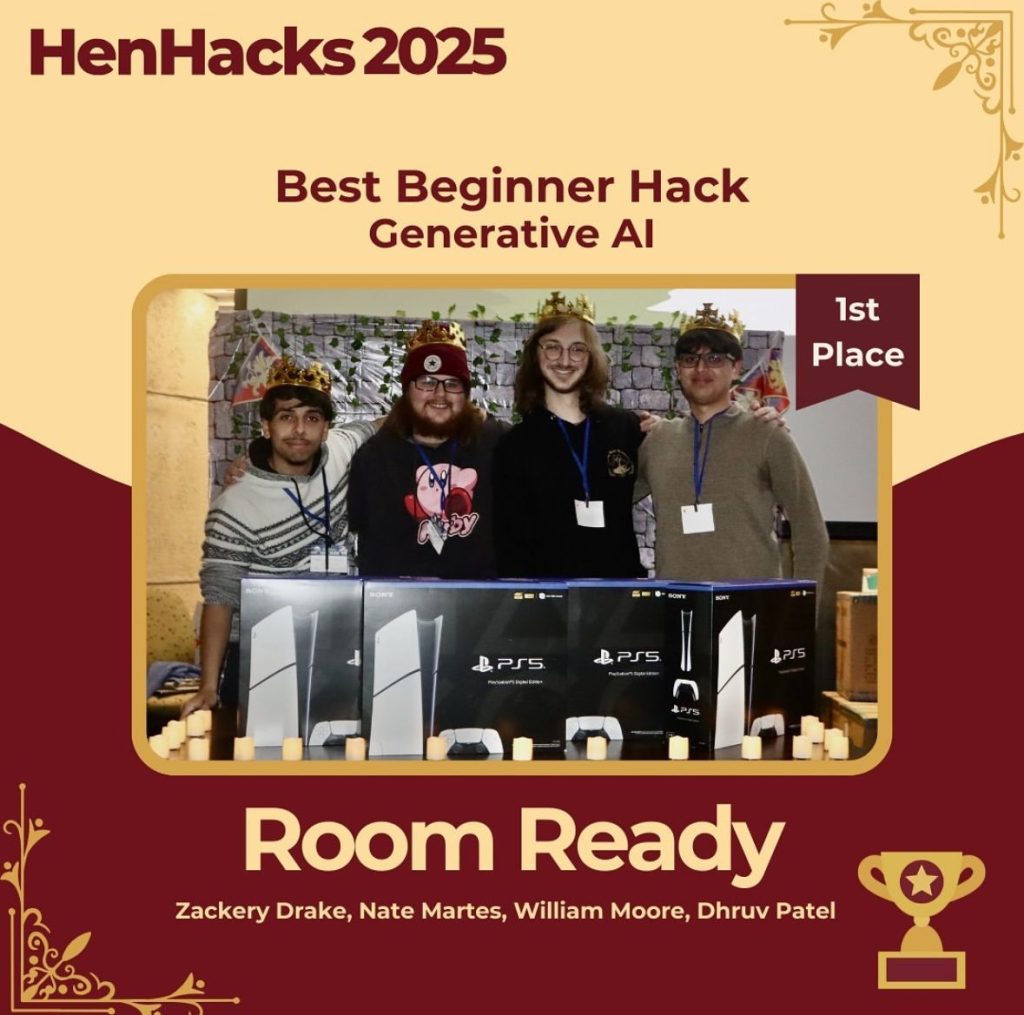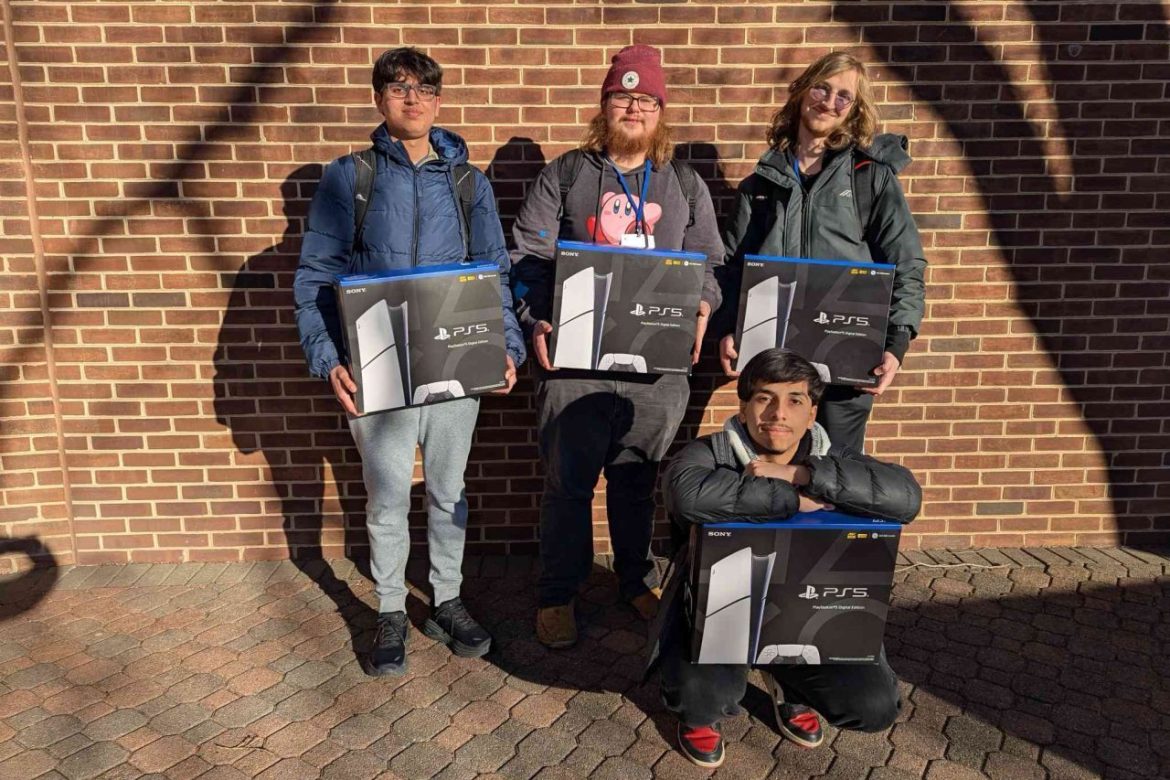Wilkes University took home first place in the generative AI category of the HenHacks Hackathon, hosted on the University of Delaware campus March 1 and 2, 2025. HenHacks, celebrating its third year, gives students a day to create technical solutions with social good in mind.
Hackathons are regarded as powerful and engaging learning tools in both educational and professional settings, where participants can come together to work collaboratively on technology projects for a limited amount of time. Beginning with a question or prompt, a hackathon’s focused pressure can result in creative solutions to complex problems.
With just 24 hours to complete their projects, participants from Mid-Atlantic colleges and beyond worked together to solve prompts that concentrated on categories like safety and emergency management, health and wellness, productivity and organization, cybersecurity and generative AI to produce solutions that could support communities in need.
The Wilkes team, composed of computer science majors Zach Drake, Nate Martes, William Moore and Dhruv Patel, tackled a prompt that asked, “What new possibilities or improvements can emerge from applying generative AI that would expand the boundaries of what we can do or understand?” It’s a big question that led to a discovery that could help those who have experienced a natural disaster.
The Wilkes team’s winning entry used generative AI as a tool to assess the possible preparedness or hazards within rooms in case of different natural disasters. Named RoomReady, the concept of this web application is both simple and practical: users could take pictures of their rooms, upload them, and the AI built into the technology would determine if those rooms might be ready to endure specific disaster conditions.

“It was truly a test of skill both as programmers and in time management, and it made the entire competition exhilarating,” said Drake, a sophomore from Laflin, Pennsylvania.
To make the best use of their limited time to address the prompt, the Wilkes team split themselves into three key work areas with Martes tackling the user interface, Drake and Moore focusing on server logistics and Patel concentrating on AI responses.
“Working under that timeframe was definitely not easy. We had to avoid getting too ambitious and make sure we had something useful working,” said Patel, a junior from Wilkes-Barre. After 24 hours, RoomReady was a reality and the team took home both a win and PlayStation 5 gaming consoles.
Sofya Chepushtanova, associate professor and chair of mathematics, physics and computer science, was thrilled to hear that the students’ collaborative spirit paid off and looks forward to encouraging future majors to participate in the competition. “I’m so proud of our students,” she said.
Drawing from their experiences in the computer science program, the Wilkes team already knew how to work well together and used those skills to architect a winning solution. Martes, a sophomore from Wilkes-Barre, particularly credits the program’s software engineering practicum as key for achieving success, as the course takes a team approach to developing large scale projects.
“CS334 was probably the most influential [course] as working with my team members was extremely important to ensure that no extra work was being done and we were all on the same page,” said Martes. ”That’s what computer science is all about, working together to build something or solve a problem with technology.”
